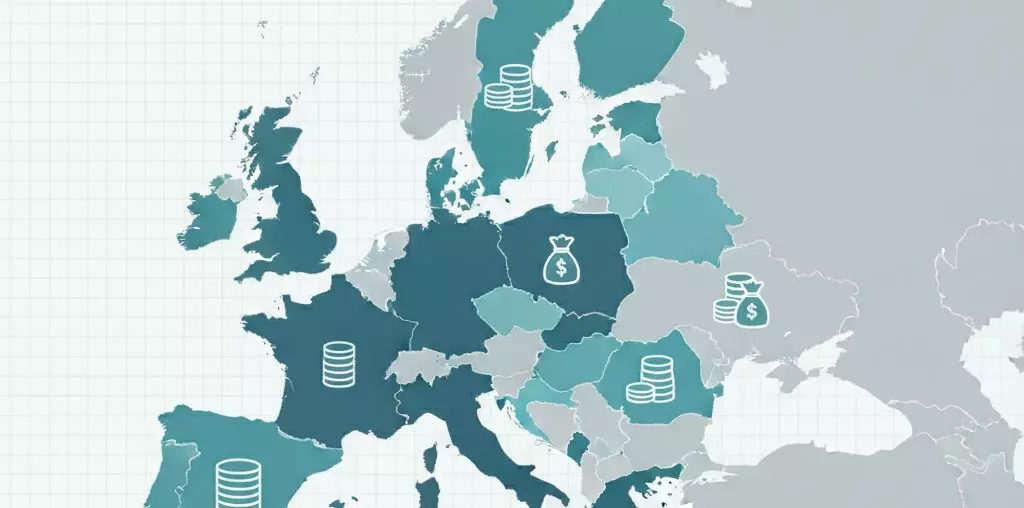Wealth taxation across Europe has become a defining economic policy debate in 2025, with only a handful of countries maintaining these controversial levies while most have abandoned them entirely. As property markets continue to surge and wealth inequality grows, understanding which European nations still collect wealth taxes and their revenue impact has never been more critical for investors and high-net-worth individuals planning their financial strategies.
Get 50% OFF!
Subscribe to our newsletter and enjoy a 50% discount on all listing packages, no strings attached!

The landscape of European wealth taxation in 2025 reveals a stark divide between countries that view these taxes as essential revenue generators and social equalizers, versus those that see them as economically damaging and difficult to administer. This comprehensive analysis examines the current state of wealth taxes across Europe, revealing surprising revenue figures and policy trends that are reshaping how nations approach taxing accumulated assets.
Which European Countries Tax Wealth in 2025?
Only five European countries maintain active wealth tax systems in 2025: Spain, Norway, France, Switzerland, and Belgium. These nations represent a dramatic reduction from the 12 European countries that imposed wealth taxes in the 1990s, highlighting a clear continental trend away from this form of taxation. Spain and Norway stand out as the most aggressive collectors, while France maintains its real estate-focused wealth tax, and Switzerland continues its unique cantonal approach.
The remaining wealth tax jurisdictions each employ different methodologies and thresholds, creating a complex patchwork of regulations across Europe. Belgium imposes a modest wealth tax primarily on securities accounts, while the other four countries cast wider nets that include real estate, financial assets, and luxury goods. These variations reflect different political philosophies about wealth redistribution and practical considerations about tax collection efficiency in an increasingly mobile global economy.
Spain and Norway Lead with Highest Rates
Spain implemented the most aggressive wealth tax regime in Europe for 2025, with rates reaching up to 3.5% annually on net wealth exceeding €10.7 million. The Spanish system applies to residents with net wealth above €700,000, though most regions offer significant reductions or exemptions that can lower effective rates substantially. Madrid notably maintains a 100% reduction on its regional portion, creating internal tax competition within Spain itself.
Norway follows closely with wealth tax rates of 1% on net wealth exceeding NOK 20 million (approximately €1.7 million), making it the second-highest in Europe. The Norwegian wealth tax applies to both residents and non-residents with substantial Norwegian assets, generating significant revenue but also prompting some wealthy individuals to relocate to neighboring countries. Both nations justify these high rates as necessary tools for reducing inequality and funding public services, though critics argue they may be driving capital flight to other European jurisdictions.
France Raises €4.2 Billion from Wealth Levies
France’s real estate wealth tax (IFI) generated €4.2 billion in revenue during 2025, representing a 12% increase from the previous year due to rising property valuations across major metropolitan areas. The tax applies to French residents and non-residents owning French real estate with a net value exceeding €1.3 million, with rates ranging from 0.5% to 1.5% depending on property values. Paris and the Côte d’Azur contribute the largest portions of this revenue, reflecting their status as premium real estate markets.
This substantial revenue stream demonstrates the effectiveness of France’s focused approach to wealth taxation, concentrating on real estate assets rather than the broader wealth base that characterized the country’s previous wealth tax system. The IFI’s success in revenue generation while maintaining relatively low administrative costs has made it a model studied by other European nations considering wealth tax reforms. French officials credit the tax’s stability to its narrow focus on immovable assets that cannot easily be relocated to avoid taxation.
Switzerland’s Cantonal System Generates €2.8B
Switzerland’s unique cantonal wealth tax system collected approximately €2.8 billion in 2025, with significant variations in rates and thresholds across the country’s 26 cantons. Zurich and Geneva contribute the largest shares of this revenue, with effective rates typically ranging from 0.1% to 1.0% depending on wealth levels and cantonal policies. The Swiss system taxes residents on their worldwide wealth while non-residents face taxation only on Swiss-situated assets, creating competitive dynamics between cantons seeking to attract wealthy residents.
The decentralized nature of Swiss wealth taxation allows for considerable regional variation, with some cantons like Zug offering more favorable rates to attract high-net-worth individuals, while others like Basel-Stadt maintain higher rates to fund local services. This internal competition has proven effective at retaining wealthy taxpayers within Switzerland’s borders while generating substantial revenue for cantonal budgets. The system’s longevity and revenue stability have made Switzerland an outlier in European wealth taxation, demonstrating that such taxes can be successfully implemented when designed with appropriate flexibility and competitive elements.
Why Most EU Nations Abandoned Wealth Taxes
The majority of European Union countries abandoned wealth taxes between 2000 and 2020 due to a combination of administrative challenges, modest revenue generation, and concerns about capital flight to neighboring jurisdictions. Germany, Sweden, and Austria eliminated their wealth taxes after determining that collection costs often consumed 30-40% of revenues, while the taxes generated less than 1% of total government income. These countries found that wealthy individuals could easily relocate assets or themselves to avoid taxation, undermining both revenue goals and economic competitiveness.
Administrative complexity proved to be another decisive factor in wealth tax abandonment, as annual asset valuations required extensive bureaucratic resources and created frequent disputes with taxpayers. Countries like Italy and the Netherlands concluded that their wealth taxes created more economic distortion than benefit, particularly as global mobility increased among high-net-worth individuals. The European Union’s freedom of movement principles further complicated wealth tax collection, as taxpayers could relatively easily establish residence in lower-tax jurisdictions while maintaining their economic activities across borders, leading most nations to focus on income and consumption taxes instead.
The European wealth tax landscape in 2025 reveals a continent divided between pragmatic revenue collection and ideological commitment to wealth redistribution. While Spain and Norway push forward with aggressive rates despite potential capital flight risks, France and Switzerland demonstrate that more targeted approaches can generate substantial revenue with greater political sustainability.
The future of European wealth taxation will likely depend on whether the remaining collector countries can demonstrate long-term revenue stability without significant economic disruption. As global wealth mobility continues to increase and European integration deepens, the handful of nations maintaining wealth taxes face the ongoing challenge of balancing social equity goals with economic competitiveness in an increasingly interconnected world.





Join The Discussion